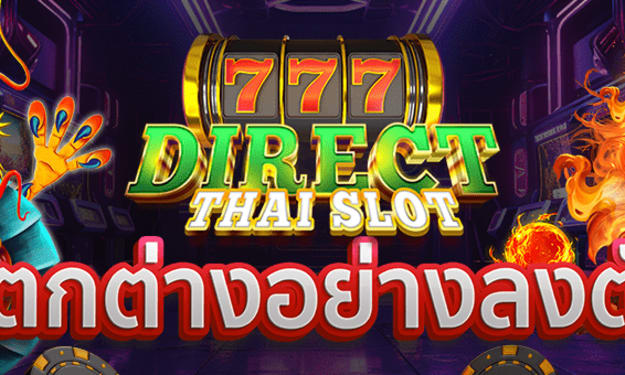
Traditional games are centralized, which implies that all things and experience (XP) earned in one game cannot be utilized in another. The introduction of blockchain technology to crypto games changes this. Players may now transfer their awards and stuff between other crypto gaming initiatives.
Players may also make money through crypto gaming. This is known as a play-to-earn approach, and it allows gamers to make money in a number of ways. Take, for example, Axie Infinity. Users may purchase Axies, level them up, and then sell them for more money. Players can also compete with their Axies for SLP and AXS, Ethereum-based crypto gaming tokens.
This adds a whole new dimension to the industry: the possibility of earning cryptocurrency while playing games. Three out of four gamers said they wanted they could utilize their cash on other platforms, according to Worldwide Asset Exchange. Is it, however, only gamers who are playing?
Who is playing?
Statista keeps track of how many people have played NFT games in the last 30 days. The top three NFT games, with a combined monthly user count of over two million, are Alien Worlds, Axie Infinity, and Splinterlands.
Despite the dearth of study on crypto gaming demographics, it is evident that gamers are the primary target audience. Millennials are the largest age group, according to Triple A, with 38 percent of crypto players aged 21 to 38. 55 percent of millennials who possess cryptocurrencies are already gamers.
With 22.6 million players owning cryptocurrency, Asia-Pacific is a big player in the market. 5.9 million gamers in Europe and 5.8 million in the Middle East and Africa followed. North America, surprisingly, has the fewest crypto players, with only 3.3 million.
This information is fairly comparable to that of the overall gaming market. According to Statista, Asia-Pacific nations lead the top five gaming markets in terms of revenue.
Sergey Kopov is the CEO and creator of 0xGames, a blockchain game development studio that has worked on a number of projects. He expects that crypto gaming would pique the interest of the world’s 3.24 billion gamers.
“Crypto games mostly attract those who want to make money on this new craze,” Kopov told Currency.com. This, however, is just transitory. Crypto games will soon be entertaining enough to compete with classic games in terms of playability, allowing them to draw gamers’ attention.”
The Philippines has established itself as a crypto gaming hotspot. The Covid epidemic affected the country’s economy severely, but some citizens found a new method to generate money. A YouTube documentary tracked Filipinos who made money using Axie Infinity, demonstrating that there is money to be gained by devoting time in these networks. The documentary also questioned the stereotype of crypto gamers. A mother, a fresh college graduate, a cab driver, and an old married couple — all crypto players — were included in the video.
How does crypto gaming work?
Many aspects seen in crypto alternatives are previously present in traditional games. Players may buy in-game money using fiat cash, gather things, and level up their characters. So, what is it about crypto gaming that draws investors and players?
Crypto gaming’s success can be attributed in part to ownership. Unlike traditional games, crypto games give players ownership of the items they gather thanks to blockchain technology. Players can own, trade, and even sell their in-game things. The marketplace dynamic has drawn players, whether it’s a Splinterlands creature card or a purple Axie with green thorns.
Players are also enticed by the possibility of making money through gaming. Certain games have been chastised in the past for using a pay-to-play paradigm, in which users must pay to get the most out of a game. Investing money in crypto gaming used to just increase your experience, such as allowing you to level up faster. Crypto gaming achieves the exact opposite: the play-to-earn paradigm now allows users to benefit from their cryptocurrency investments. Some Filipino gamers have even been able to make money as a result of this.
What are the risks?
Crypto gaming, while its benefits, has certain disadvantages. Some games are more affected by access hurdles than others. For example, Axie Infinity needs participants to have three Axies before they may participate. The cheapest Axies are roughly $100, so you’ll need to spend at least $300 before you can start earning. Most conventional games do not cost more than $100, therefore this high amount of expenditure may deter the ordinary player.
It’s also possible to lose your tokens and NFTs. This can happen if you try to transmit them to a wallet that doesn’t accept the NFT format or if you become a victim of a fraud. This is not uncommon: in July, the inventor of the crypto game Hedgie claimed to have been defrauded of over $1 million in NFTs. Similarly, Ronin, the blockchain that powers Axie Infinity, was hacked, with almost $600 million stolen.
This is an even greater risk for crypto games than it is for cryptocurrencies, because operators are frequently exempt from certain regulations, such as anti-money laundering, which increases the potential of fraud.
Players might lose money due to volatility as well as malicious attempts. Crypto game tokens, like non-gaming cryptocurrencies, are subject to price fluctuations, although some games limit the number of times you may withdraw tokens. This implies that if the value of a crypto gaming currency like AXS drops (it’s now roughly half of what it was on December 8, 2021, for example), players may not have enough time to hedge their bets.
Combining two of the most advanced technologies exacerbates a critical problem that both are vulnerable to: gambling. Loot boxes are a new feature in video games that allows players to pay to open a virtual box containing random goodies. Loot boxes are “structurally and psychologically equivalent to gambling,” according to a research. Loot boxes have also become popular in crypto games. Splinterlands, for example, offers you to purchase packs of random cards. With gaming’s millennial user base, health experts are afraid that gambling has become a part of young people’s daily lives, and crypto gaming will further feed this trend.
The future of crypto games
Crypto gaming is becoming increasingly popular, and investors want to be a part of it. Sky Mavis raised $7.5 million in its first round of fundraising, thanks to Mark Cuban’s investment. Framework Ventures just created a $400 million fund for Web 3.0 games, and other venture capital firms are following suit.
Both Solana and Polygon have begun investing in early-stage blockchain games that include decentralised financing (DeFi) into their platforms, indicating that blockchain firms are interested in getting on board. With more and more investors putting pressure on crypto gaming platforms, the sector might expand.
The crypto gaming sector, on the other hand, was struck a big blow in October when Steam, the world’s largest distributor of PC games, stated that it would no longer host blockchain-based games, presumably because it would not allow products with real-world value on its platform. If Steam stops supporting crypto games, companies would lose access to an industry-leading marketplace with 62.6 million daily users.
Epic Games, the publisher, is adopting a different strategy. Although Epic will not be producing its own crypto games, CEO Tim Sweeney stated that the company is eager to collaborate with early blockchain game makers. Crypto games would have to follow financial rules and have acceptable age ratings, according to the video game distributor. This might eliminate many of the hazards that crypto games face, while also allowing Epic Games’ 31.3 million daily players access to the market.





Comments
There are no comments for this story
Be the first to respond and start the conversation.